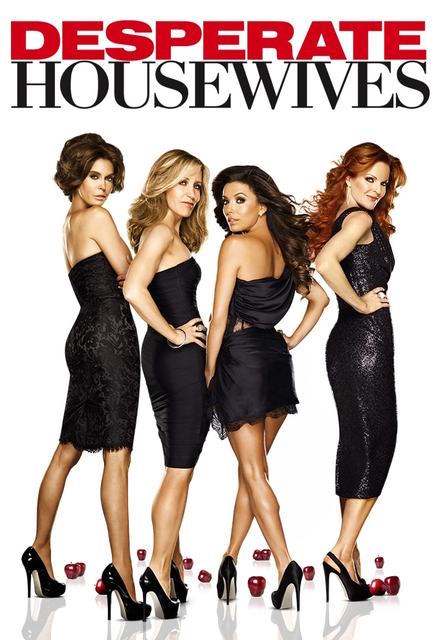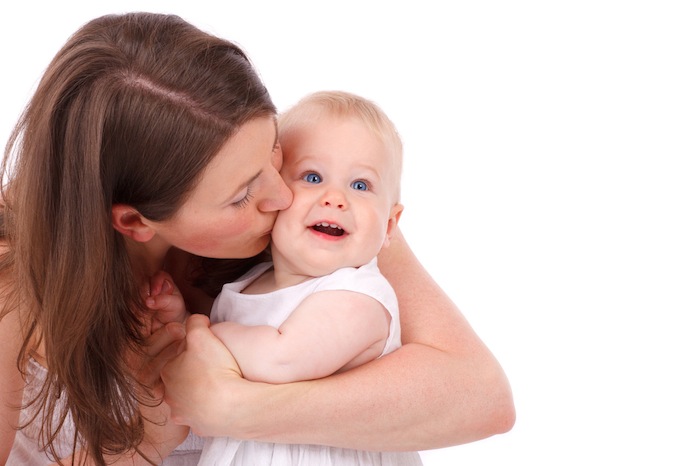 Desperate Housewives? Man I can relate
Desperate Housewives? Man I can relate
My name is Leslie, and I am addicted to Desperate Housewives.
The editor of Ms. Magazine, a woman of impeccable priorities, recently left the publication over an argument about Desperate Housewives. If that’s not a sign that the show has morphed into more than a guilty pleasure, I don’t know what is.
So, in honor of “Turn Off Your Television Week” (which I refuse to honor in any other way), I’d like to herald the return of the soap opera.
I’ve always been a fan of the genre, enjoying the eye candy — both the fabulous flesh and the even more fabulous fashions — as much as the outrageous plot lines. Plus, I’ve always longed to slap someone with the Diva-like authority of a soap opera vixen and wondered whether it would really make such a satisfying sound. Unfortunately, the selfish man I married refuses to have an affair, denying me adequate justification. Maybe I could nail him on leaving the toilet seat up…
My infatuation started long before I could follow most of the complicated plot lines. I remember sipping Tab and eating bridge mix while dissecting General Hospital with my Grandma Etta. We tsk-tsked over young Demi Moore getting herself involved with the much older Robert Scorpio (ironic, isn’t it Ashton?) and fretted for the future of Luke and Laura’s union.
In college, All My Children (All My Kids as we affectionately called it) was the big thing at my sorority house. We planned our classes so we could be home at noon, and share in the exhausting adventures of Erica Cane. And it wasn’t just a girl thing: complain though they did, most of our boyfriends were seriously addicted by the end of first semester. Come to think of it, another missed slapping opportunity.
Of course we were college students, who took ourselves oh-so-seriously, so we had to mock our addiction in order to stomach it a little better. I can’t tell you how many times I heard the words “post-modern,” “pre-feminist,” and “evil twin” while all eyes were glued to All My Kids.
Which brings me back to Desperate Housewives, and why I get such a kick out of the fact that people are expending so many precious brain cells dissecting this silly little show.
Don’t get me wrong, my TIVO is working just as hard as the next gal’s every Sunday night, and I couldn’t wait to read that trashy Vanity Fair article where the housewives fight over who gets to be in the middle of the picture. But when culture critics and academics start dissecting the show like it’s a spot of saliva on CSI Pittsburgh, I have to laugh. Haven’t you guys ever seen a soap opera before?
They’ve always been the shows where over-40 actresses drive the drama, get the guys, and pop off the best lines. And incidentally, they look fabulous while doing it.
But like General Hospital, which worked a sensitively written breast cancer storyline into the drama and was one of the first shows to feature an HIV positive character, the best soap operas manage to walk a fine line between melodrama and good old-fashioned storytelling. Desperate Housewives too sticks some real issues (dealing with aging parents, spanking your children) in amongst the lingerie and the murders.
So why is it that both intellectuals and people with G-rated lives — who rarely agree on anything — say I’m not supposed to like Desperate Housewives? It’s either too racy or it’s too retro, pre-feminist or post-feminist.
Do I need more coffee or are those oh-so-serious college conversations coming back to haunt me?
But I’m older and wiser now, and not afraid to admit that I’ve been hooked on housewives since the very first episode.
It wasn’t the over-the top antics of Nicolette Sheridan’s Edie character (which would have tickled me as a kid) or the Twin Peaks-like mysterious narrator (which would have delighted me in college), it was Felicity Huffman’s Lynette character.
“The other ones are fun, but Lynette’s character is the only one I really relate to,” said a friend at a recent Desperate Housewives fundraising cocktail party.
Lynette left a high-powered job to stay home with four rambunctious boys. During a particularly challenging (i.e. typical) day she runs into a former co-worker (perfectly coifed in a spit-free power suit) who asks how she likes her new life. After a pregnant pause, the look on Lynette’s face says volumes more than the cliche on her lips: “This is the best job I ever had.”
In another great Lynette moment, she has a breakdown at a park and when her friends find her, they confess how difficult motherhood has been for them, too, and Lynette questions why mothers can’t be more honest about feeling overwhelmed.
Mothers all over the land cheered, “Somebody finally said it on television.”
And if the housewives can admit that being a mother is hard, then I can make a confession too — Desperate Housewives isn’t a guilty pleasure, it’s simply a pleasure.
My husband doesn’t agree with me. I think I’ll slap him.

